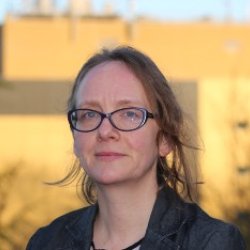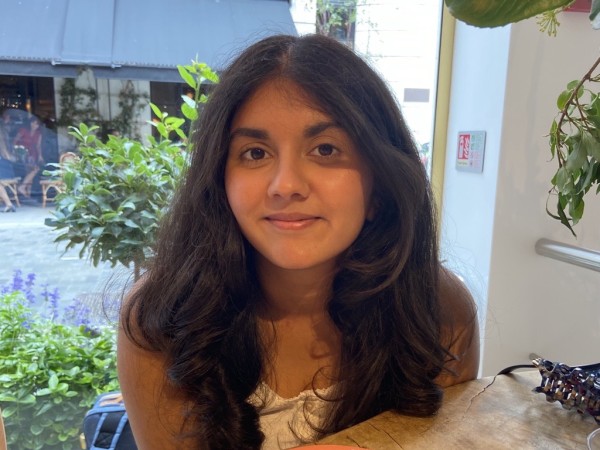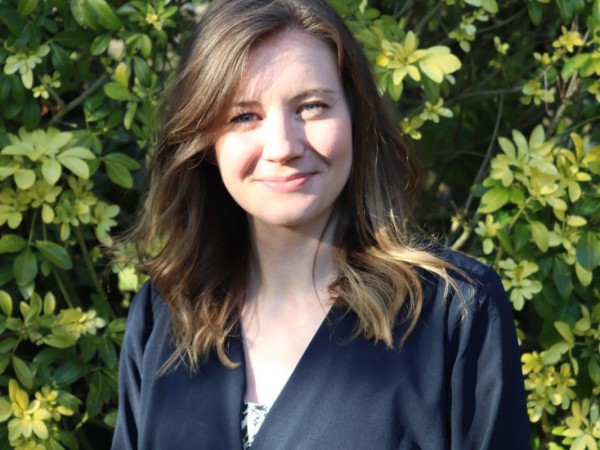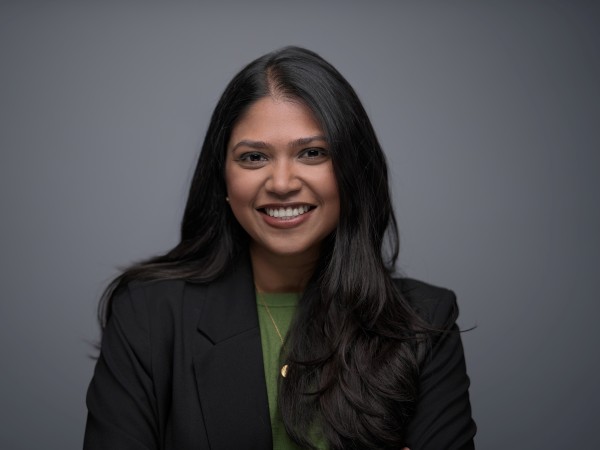
Sarah Gray
"Surrey was my first choice because I’d read some of the research outputs from the Centre for Environment and Sustainabilityand the Centre for the Understanding of Sustainable Prosperity. I liked how they worked in an interdisciplinary way that is solution oriented. It chimed with how I was operating as a Research Analyst."
Entry year
2019Research project
Reducing the throughput of clothing: Are some approaches more environmentally beneficial than others?
What’s your background?
I’ve worked in resource efficiency since 2002, back when it was mainly concerned with getting people to recycle. For most of that time, I’ve been employed by WRAP, which is the Waste and Resources Action Programme. They’re also the industrial sponsor on my Practitioner Doctorate in Sustainability (PDS), which means I work alongside them to conduct my research.
What got you interested in sustainability?
I remember watching news reports on climate change when I was a teenager. I was horrified by it. It was only when I got my first degree and I started thinking about meaningful jobs where I could contribute to society that I thought about sustainability.
What brought you to Surrey?
A doctorate felt like a logical step for me. Surrey was my first choice because I’d read some of the research outputs from CES (Centre for Environment and Sustainability) and CUSP (Centre for the Understanding of Sustainable Prosperity). I liked how they worked in an interdisciplinary way that is solution oriented. It chimed with how I was operating as a Research Analyst at WRAP.
I was quite lucky because I phoned the University and I instantly got chatting to somebody who talked me through how the practitioner doctorate programme works, and that was pretty much that.
Can you tell me about your research?
My thesis is titled, Reducing the throughput of clothing: Are some approaches more environmentally beneficial than others? I’m looking at a variety of different models to reduce the environmental impact of the clothing sector. My initial research shows clothing and textiles are both carbon and water-intensive. But there are so many things going on in production systems around clothing. It’s a quite a mammoth challenge to change it all.
What can we do?
One thing we can do – and there seems to be general agreement on this – is to get more use out of the clothing we have. This seems to be the optimal solution. The shopping habit we have in the developed world is one of the biggest problems, especially considering we don’t wear a lot of the clothes we buy.
We also throw so much away hardly having worn it. There’s a big opportunity to get more use out of the clothing we own, and take the pressure off the production system while they’re looking to make changes to reduce their environmental impact.
What else are you examining?
There are different business models for how we can get more use out of the clothing we own and we’ve seen fast growth in some of them. New businesses who resell clothes, like Depop and Vinted, already exist on digital platforms. We’re seeing new rental platforms, too, where individuals rent clothes to each other.
Subscription leasing models exist, as well. You can lease a pair of jeans for a year, return them and they can be refurbished and leased to somebody else if you don’t want to keep them. The benefit of this idea is you’re not responsible for repairing or disposing of them.
How will your research impact on the wider industry?
At WRAP, we’re preparing to launch our new campaign, Textiles 2030. This is a collaboration between retailers and brands, and recyclers and reuse organisations in the UK. We’re trying to get everyone to work together and find solutions to the sustainability and environmental problems they face.
I’m hoping my research will offer the clothing and textiles organisations involved a reason – or at least advice – for adopting a more sustainable business model over their current one. It will also provide examples of things you want to avoid doing if it increases impact.
What are your future plans?
Securing a doctorate isn’t about jumping into a new role for me. I’m really happy working at WRAP. It’s more about allowing my research career to develop.
I’m keen to finish my research and effectively disseminate it. Being at Surrey has enabled me to make much stronger connections in the wider world. I’ve been speaking to wonderful people and I’m looking forward to having fantastic results to share.
Learn more about studying for a Practitioner Doctorate in Sustainability our Centre for Environment and Sustainability.


